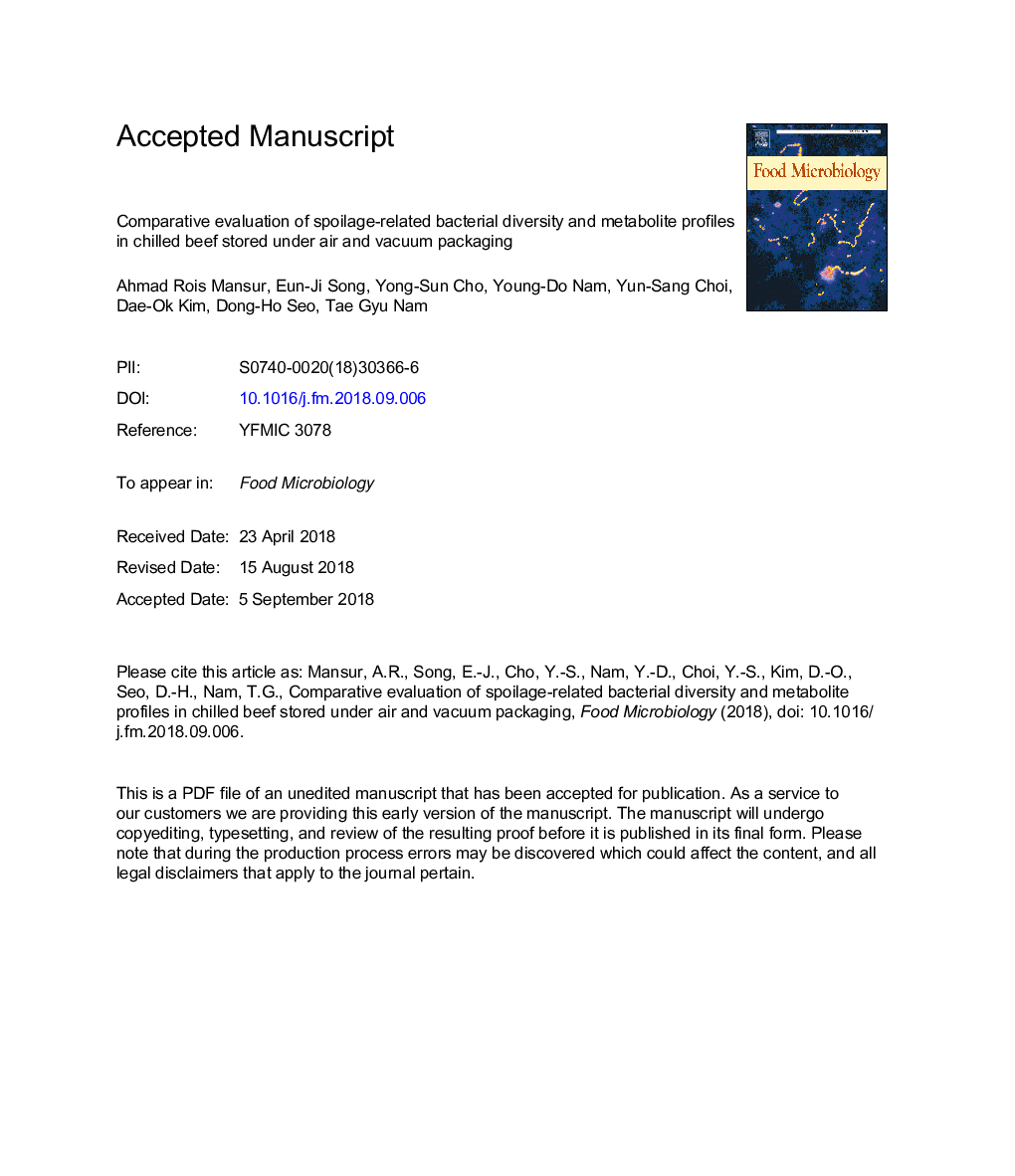| Article ID | Journal | Published Year | Pages | File Type |
|---|---|---|---|---|
| 10130149 | Food Microbiology | 2019 | 27 Pages |
Abstract
Microbial spoilage is a complex event to which different bacterial populations and metabolites can contribute depending on the storage conditions. This study explored the evolution of spoilage and related volatile organic compounds (VOCs) in chilled beef under air and vacuum packaging (VP). The results suggested that different storage conditions affected changes in bacterial communities and metabolites in beef and consequently affected the odor properties of the stored beef, thereby leading to spoilage. Bacterial species belonging to Pseudomonadaceae (Pseudomonas spp.) and lactic acid bacteria (Lactobacillus sp.) dominated the bacterial communities in beef stored under air and VP, respectively, with several VOCs associated with off-odors of the stored beef and most likely produced by both bacteria. Our results suggested several microbial VOCs that could be used as potential spoilage indicators, including acetic acid, butanoic acid, and 2-butanone in VP-stored beef and 3-methylbutan-1-ol, ethyl acetate, acetoin, 2-butanone, and diacetyl in air-stored beef. These findings might provide valuable information regarding the quality monitoring of beef during storage.
Related Topics
Life Sciences
Agricultural and Biological Sciences
Food Science
Authors
Ahmad Rois Mansur, Eun-Ji Song, Yong-Sun Cho, Young-Do Nam, Yun-Sang Choi, Dae-Ok Kim, Dong-Ho Seo, Tae Gyu Nam,
